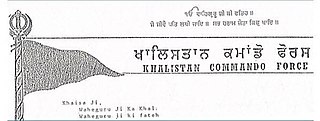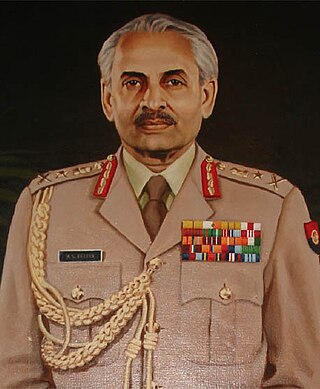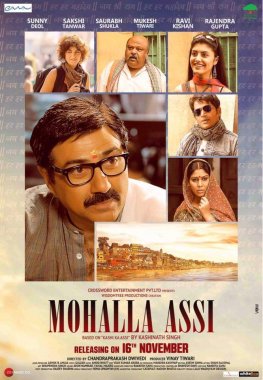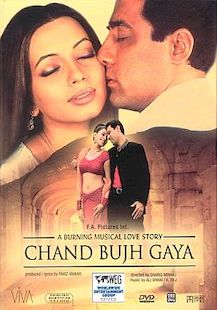Related Research Articles

The Khalistan Commando Force (KCF) is a Sikh Khalistani militant organisation operating in the state of Punjab, India with prominent members based in Canada, United Kingdom and Pakistan. Its objective is the creation of a Sikh independent state of Khalistan through armed struggle. KCF is also responsible for many assassinations in India, including the 1995 assassination of Punjab Chief Minister Beant Singh. It is designated as a Terrorist Organisation by the Government of India.
Censorship in India has taken various forms throughout its history. Although de jure the Constitution of India guarantees freedom of expression, de facto there are various restrictions on content, with an official view towards "maintaining communal and religious harmony", given the history of communal tension in the nation. According to the Information Technology Rules 2011, objectionable content includes anything that "threatens the unity, integrity, defence, security or sovereignty of India, friendly relations with foreign states or public order".

The Central Board of Film Certification (CBFC) or Censor Board of Film Certification is a statutory film-certification body in the Ministry of Information and Broadcasting of the Government of India. It is tasked with "regulating the public exhibition of films under the provisions of the Cinematograph Act 1952." The Cinematograph Act 1952 outlines a strict certification process for commercial films shown in public venues. Films screened in cinemas and on television may only be publicly exhibited in India after certification by the board and edited.

General Arunkumar Shridhar VaidyaPVSM, MVC & Bar, AVSM, ADC was an Indian Army general. He served as the 12th Chief of the Army Staff from 1983 to 1986. Following his retirement, he was assassinated by Harjinder Singh Jinda and Sukhdev Singh Sukha in August 1986, for his role in Operation Blue Star in 1984.

Harjinder Singh Jinda was a Sikh militant and one of the two assassins of Arun Vaidya. He was responsible for three high-profile assassinations: Arjan Dass, Lalit Maken and Gen. Vaidya. He along with other members of Khalistan Commando Force participated in Indian history's biggest bank robbery of ₹ 57 million from Punjab National Bank, Miller Gunj branch, Ludhiana to finance the militancy for a separate Sikh state of Khalistan.

Kulwinder Singh Gill, better known as Guggu Gill, is an Indian film actor who mainly works in Punjabi cinema. He was one of the leading actors in Punjabi cinema in the 1990s along with Yograj Singh. He has done 65-70 films so far.

Sukhdev Singh Sukha was a Sikh militant and one of the two assassins of Arun Vaidya. He was responsible for three high-profile assassinations; Arjan Dass, Lalit Maken and Gen. Vaidya. He along with other members of Khalistan Commando Force participated in Indian history's biggest bank robbery of ₹ 57 million from Punjab National Bank, Miller Gunj branch, Ludhiana to finance the militancy for a separate Sikh state of Khalistan.

Sukhdev Singh Dhillon, best known as General Labh Singh and also known as Sukha Sipahi and just Labh Singh, was a former Punjab police officer turned militant who took command of the Khalistan Commando Force after its first leader, Manbir Singh Chaheru, was arrested in 1986.

Bhai Manbir Singh Chaheru Also known as General Hari Singh was the Indian founder and first leader of the Freedom fighter's organisation Khalistan Commando Force.
Lalit Maken was a Member of parliament, a political leader of Indian National Congress and a labour union leader. Maken was the son-in-law of late President of India, Shankar Dayal Sharma.

Leela Samson is a Bharatanatyam dancer, choreographer, instructor, writer and actress from India. As a soloist, she is known for her technical virtuosity and has taught Bharatanatyam at Shriram Bhartiya Kala Kendra in Delhi for many years.
Sukhdev may refer to:

Mohalla Assi is a 2018 Indian Hindi-language satirical drama film starring Sunny Deol and Sakshi Tanwar, and directed by Dr. Chandraprakash Dwivedi.

Unfreedom: Blemished light is a 2014 Indian drama film by Raj Amit Kumar, which was released in North America on 29 May 2015. Faiz Ahmad Faiz's poem, "Ye Dagh Dagh Ujala", is the inspiration behind the film. The film stars Victor Banerjee, Adil Hussain. and Preeti Gupta.

MSG: The Messenger is a 2015 Indian Hindi-language action comedy film written by and starring Gurmeet Ram Rahim Singh in his film debut. He is also credited as co-director, co-cinematographer, co-editor, songwriter and stuntman. The film was released worldwide on 13 February 2015. It follows a spiritual leader, played by Singh and largely based on himself, on a quest to eradicate drugs and gender-related issues.

Udta Punjab is a 2016 Indian Hindi-language crime drama film written and directed by Abhishek Chaubey, co-written by Sudip Sharma, and produced by Shobha Kapoor, Ekta Kapoor, Sameer Nair and Aman Gill under Balaji Motion Pictures in association with Anurag Kashyap, Vikas Bahl and Vikramaditya Motwane under Phantom Films. Loosely based on and revolving around the drug abuse by the youth population in the Indian state of Punjab and the various conspiracies surrounding it, the film stars an ensemble cast of Shahid Kapoor, Alia Bhatt, Kareena Kapoor Khan and Diljit Dosanjh.
Mandeep Benipal is an Indian film director. He made his directorial debut with movie Ekam - Son of Soil in 2010. Later he came up with the movie Sadda Haq (2013), Yoddha (2014) and Dakuan Da Munda.

Chand Bujh Gaya is a 2005 Indian Hindi-language drama thriller film directed by Sharique Minhaj in his directorial debut and featuring Faisal Khan and Shama Sikander in leading roles. The film is set against the backdrop of the 2002 Godhra train burning. Both the Central Board of Film Certification (CBFC) and its appellate authority, the Film Certificate Appellate Tribunal (FCAT) refused to grant a certificate to the film. The film was released only after the Bombay High Court quashed the decisions of CBFC and FCAT.
On September 5, 1985, at 9:20 am member of the Delhi Metropolitan Council, close associate of Sanjay Gandhi, and Congress leader Arjun Dass was assassinated by 3 Sikhs in Delhi. The assassins were Harjinder Singh Jinda, Sukhdev Singh Sukha, and another member of Jinda's group. They killed Dass in revenge for his role in the 1984 anti-Sikh riots. Along with Arjun Dass his bodyguard, a constable, was killed and 6 others were injured.
References
- ↑ "The film, which is based on the letters exchanged between the Sukha and Jinda before they were hanged for their crimes". Archived from the original on 18 October 2015. Retrieved 14 September 2015.
- ↑ "ban has cost the producers nearly Rs 2.5 crore, in addition to Rs 43 lakhs spent on publicity". Archived from the original on 14 September 2015. Retrieved 14 September 2015.
- ↑ TNN (13 August 2015). "'The Mastermind Jinda Sukha' postponed to September 11, 2015". The Times of India. Archived from the original on 25 March 2018. Retrieved 26 August 2015.
- ↑ "'Jinda-Sukha' banned in India, film makers to release it abroad". www.hindustantimes.com. 11 September 2015. Archived from the original on 11 September 2015. Retrieved 14 September 2015.
- ↑ "The Mastermind- Jinda Sukha, a real life story set to release early June". The Times of India. 3 March 2015. Archived from the original on 8 March 2015. Retrieved 14 September 2015.
- ↑ Mishra, Garima (11 September 2015). "Movie on Gen Vaidya assassins: Army denied filmmakers permission to shoot murder scene in city". The Indian Express. Archived from the original on 15 September 2015. Retrieved 14 September 2015.
- ↑ "Censor Board bans the film on assassins of General Vaidya : Punjab, News". India Today. 10 September 2015. Archived from the original on 18 October 2015. Retrieved 14 September 2015.
- ↑ Kapoor, Jaskiran (10 September 2015). "Censor okays, then blocks film on assassins of General A S Vaidya". The Indian Express. Archived from the original on 11 September 2015. Retrieved 14 September 2015.
- ↑ "Intelligence Bureau red-flags a Punjabi movie 'Jinda and Sukha' based on AS Vaidya killers". timesofindia-economictimes. 6 May 2015. Archived from the original on 10 October 2015. Retrieved 14 September 2015.
- ↑ "Film certification: A, U, A/U and everything in between". Archived from the original on 12 September 2015. Retrieved 14 September 2015.
- ↑ "A censor board is for certification, not for bans. Ban is childish, an immature act in a democracy. Censor board can ask for cuts and edits, but not gag the freedom of a filmmaker". Archived from the original on 11 September 2015. Retrieved 14 September 2015.
- ↑ Neha, Saini (14 September 2015). "Film on Sukha-Jinda to be released overseas". www.tribuneindia.com. Tribune News Service. Archived from the original on 2 October 2015. Retrieved 14 September 2015.